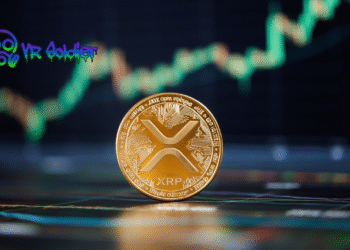Since the emergence of blockchain technology, it has been praised for its ability to provide a secure and transparent platform for voting. Its decentralized digital ledger can be used to ensure the integrity and security of political elections by recording and verifying votes in a tamper-proof way. Blockchain can be integrated into a country’s political elections to eliminate concerns around voter fraud and hacking, reduce corruption, and increase accountability in political campaigns.
Blockchain Integration In Political Elections
One of the main benefits of blockchain in political elections is its ability to create a transparent and secure platform for voting. By recording and verifying votes on a decentralized ledger, governments and election officials can ensure that each vote is counted accurately and that the results are tamper-proof. This would help to eliminate many of the concerns around voter fraud and hacking that have plagued traditional voting systems in the past for both developed and developing countries.
In addition to providing a secure voting platform, blockchain can also be used to track campaign donations and expenses. By recording campaign transactions on a transparent and immutable ledger, blockchain can help to increase transparency and reduce corruption in political campaigns. This would enable voters to make more informed decisions about which candidates to support and would help to ensure that political campaigns are held to a higher standard of accountability.
Another very important potential application for blockchain in political elections is in the area of voter registration. By using blockchain to create a decentralized and secure digital identity system, governments can ensure that each voter is registered accurately and securely. This would help to eliminate concerns around voter impersonation and other forms of identity fraud that can occur in traditional voter registration systems, whereby there are cases of over registrations or any such.
Possible Challenges
Despite the potential benefits of blockchain technology in political elections, there are some challenges to integrating blockchain into political elections.
One of those challenges is ensuring that the technology is accessible and user-friendly, especially for those who may not be familiar with blockchain. Of course, this can be solved via Blockchain education in universities, by adding courses around the blockchain into the school curriculum.
Final Thoughts
Overall, the potential for blockchain to revolutionize political elections is significant, and it’s what can be anticipated in the future. By providing a secure and transparent platform for voting, tracking campaign transactions, and voter registration, blockchain can help to ensure the integrity and security of political elections. As the technology continues to evolve and mature, it will be important for governments and elected officials to ensure that it is integrated in a responsible and inclusive way, and that its benefits are shared by all.
Disclosure: This is not trading or investment advice. Always do your research before buying any cryptocurrency or investing in any projects.
Image Source: feelart/123RF // Image Effects by Colorcinch












